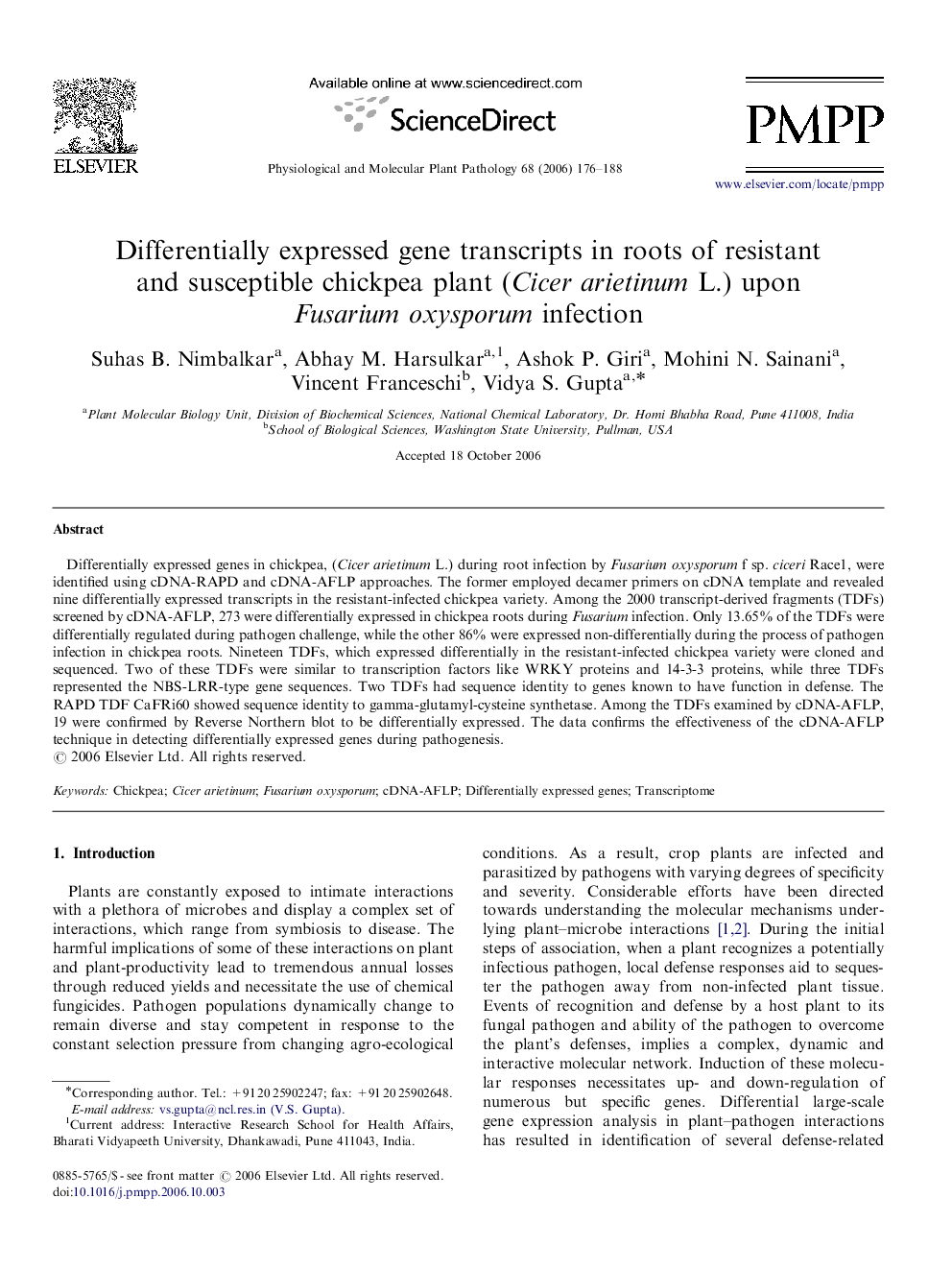| Article ID | Journal | Published Year | Pages | File Type |
|---|---|---|---|---|
| 2836780 | Physiological and Molecular Plant Pathology | 2006 | 13 Pages |
Differentially expressed genes in chickpea, (Cicer arietinum L.) during root infection by Fusarium oxysporum f sp. ciceri Race1, were identified using cDNA-RAPD and cDNA-AFLP approaches. The former employed decamer primers on cDNA template and revealed nine differentially expressed transcripts in the resistant-infected chickpea variety. Among the 2000 transcript-derived fragments (TDFs) screened by cDNA-AFLP, 273 were differentially expressed in chickpea roots during Fusarium infection. Only 13.65% of the TDFs were differentially regulated during pathogen challenge, while the other 86% were expressed non-differentially during the process of pathogen infection in chickpea roots. Nineteen TDFs, which expressed differentially in the resistant-infected chickpea variety were cloned and sequenced. Two of these TDFs were similar to transcription factors like WRKY proteins and 14-3-3 proteins, while three TDFs represented the NBS-LRR-type gene sequences. Two TDFs had sequence identity to genes known to have function in defense. The RAPD TDF CaFRi60 showed sequence identity to gamma-glutamyl-cysteine synthetase. Among the TDFs examined by cDNA-AFLP, 19 were confirmed by Reverse Northern blot to be differentially expressed. The data confirms the effectiveness of the cDNA-AFLP technique in detecting differentially expressed genes during pathogenesis.
